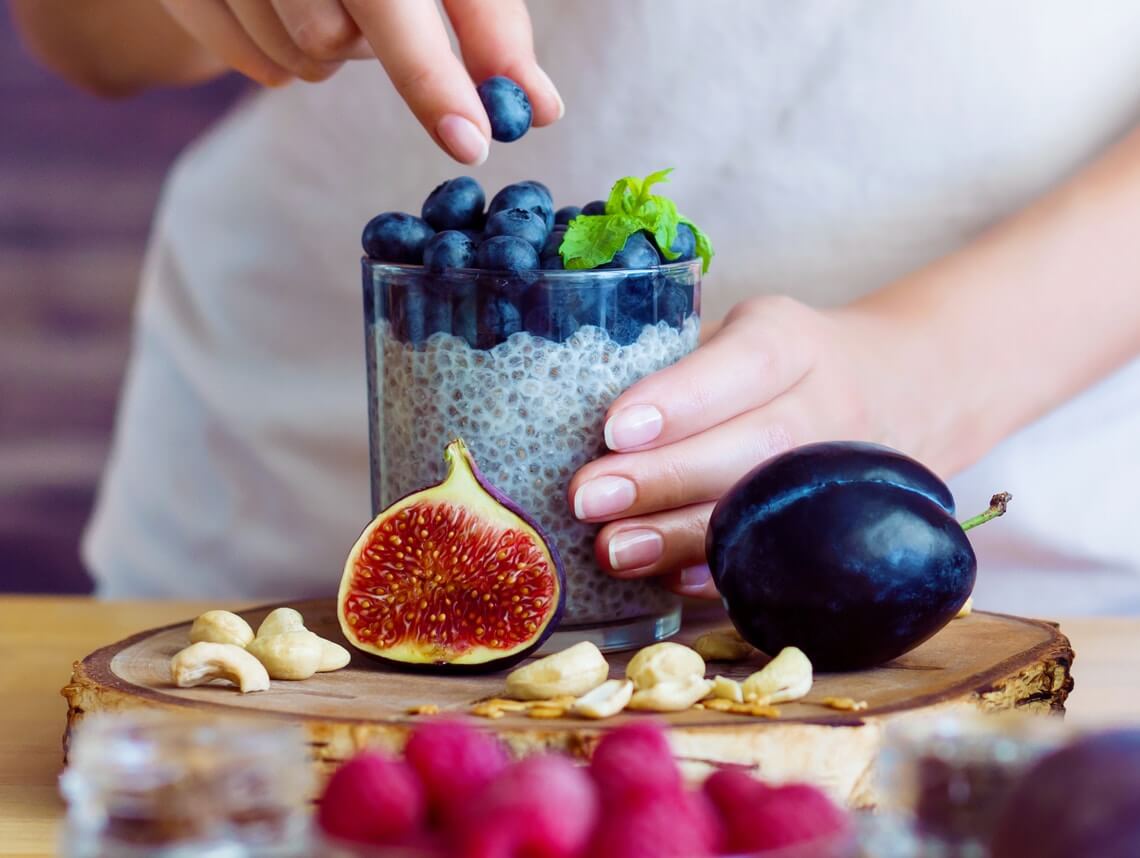Finding out you’ve been diagnosed with a life-altering health condition comes with shock — as well as with a long list of emotions, such as fear, anxiety, and worrying about how this is going to impact your life. Feelings are heightened when the illness affects vital organs — such as your lungs and digestive system — as is the case with cystic fibrosis. What can you do to ensure you’re eating the right foods? Is there anything you should avoid? And, is taking nutritional supplements helpful?
What is cystic fibrosis?
Cystic fibrosis (CF) is a hereditary ailment that causes the body to produce thick mucus that makes breathing difficult. Instead of acting as lubricants, the secretions plug up tubes, ducts, and passageways, especially in the lungs and pancreas. This mucus also makes it harder for the intestines to absorb nutrients. While the concept can be alarming — with proper management and lifestyle habits — you can have a relatively normal life.
Why is diet so important for a person with cystic fibrosis?
Since CF affects your body’s ability to absorb nutrients properly, you must pay extra attention to your caloric intake as well as how nutritionally dense your meals are. This is because Cystic fibrosis affects the cells that produce mucus, sweat, and digestive juices. Typically, you’ll need twice as many calories as a person of the same age who doesn’t have the condition.
Foods to Eat If You Have Cystic Fibrosis
Food plays a critical role in managing your condition. Add the following foods to your regular meal rotation to increase the likelihood of adequate nourishment:
1. Fruits
In addition to being rich in vitamins, fruits contain high concentrations of fiber — which aids in keeping things moving in your intestinal tract — as well as antioxidants, which fight free radicals in your body. You can eat them as snacks, in smoothies, on cereal, salads, yogurt, and get creative with desserts.
2. Vegetables
Just like fruit, vegetables contain a good amount of fiber. Dark leafy greens top the list of most nutrient-dense, as they contain high quantities of vitamin A, vitamin K, and calcium. Juice them, include them in smoothies, make vegetable lasagna, add them to dips, pasta, soups, and look for creative recipes. Also, potatoes are high in potassium and vitamin B6, so enjoy them mashed, baked, or as tater tots — and add gravy and cheese to include calories.
3. Seafood
Fatty fish — such as salmon, trout, and herring — are an excellent source of iron, omega-3 fatty acids, protein, and vitamin D. Make sure to purchase wild-caught seafood instead of the farm-raised variety. The quality of the fish depends on what the fish eats, and ocean and river environments provide a natural diet.
4. Nuts
Nuts are delicious, high in calories, and contain good fats, antioxidants, and vitamin E. They’re also versatile — eat them on their own as a snack, or add them to salads, yogurt, and baked goods. Another good option is to consume nut butters (peanut, cashew, almond, or hazelnut). Spread it on toast or add to smoothies — and they’re easier to eat if the person with CF is a child.
5. Olive oil
Adding olive oil to dishes is the easiest way to substantially increase caloric intake, while at the same time adding flavor. In addition, extra virgin olive oil is rich in polyunsaturated fatty acids — which provide nutrients that help develop your body’s cells. Add it to hummus, dip bread in it, drizzle over pasta and salads, use it as a marinade, and add it to dips and sauces.
6. Dark chocolate
Dark chocolate is a good source of antioxidants, magnesium, and good fats. Look for varieties that have a minimum of 70% cocoa. You can eat chocolate squares, as well as add the powder version to smoothies, oatmeal, cereal, and desserts.
7. Salt
People with cystic fibrosis lose excessive amounts of salt through their sweat. Therefore, it’s crucial to replace it — especially if you’ve been outside in hot weather. Good options include adding soy sauce to dishes, as well as cooking vegetables in broth, snacking on salted nuts or crackers, and drinking sports drinks.
Foods to Avoid If You Have Cystic Fibrosis
Since you need as many calories as possible, avoid any foods that are labeled as low-fat, reduced or low-calorie, anything labeled as a diet product, and all fad diets. Also, while looking for fatty foods to increase your calories, try to avoid anything that’s high in saturated fats, since these are unhealthy and increase your risk of heart disease.
Cystic Fibrosis and Dietary Supplements
In addition to consuming more calorie-dense foods, you can increase your caloric intake by drinking protein shakes — as well as including the powder into breakfast meals such as oatmeal, muffins, and pancakes. If you opt for shakes, make sure to take them as supplemental nutrition — never as meal replacements.
If you’re taking vitamins, vitamin A boosts the immunity system as well as promotes intestinal health; while iron helps distribute oxygen throughout the body and fight infections.
Contact Care Options for Kids for Home Health Care in Florida
While a child with cystic fibrosis could lead a fulfilling life, it can have an extensive impact on your life and that of your loved ones. Let us help you. Our caregivers are experienced in assisting pediatric patients with CF and can help you to either undergo this transition or by taking care of your family member full-time.
If you are considering home health care services in Florida, contact the caring staff at Care Options for Kids. Call us today at (888) 592-5855.






